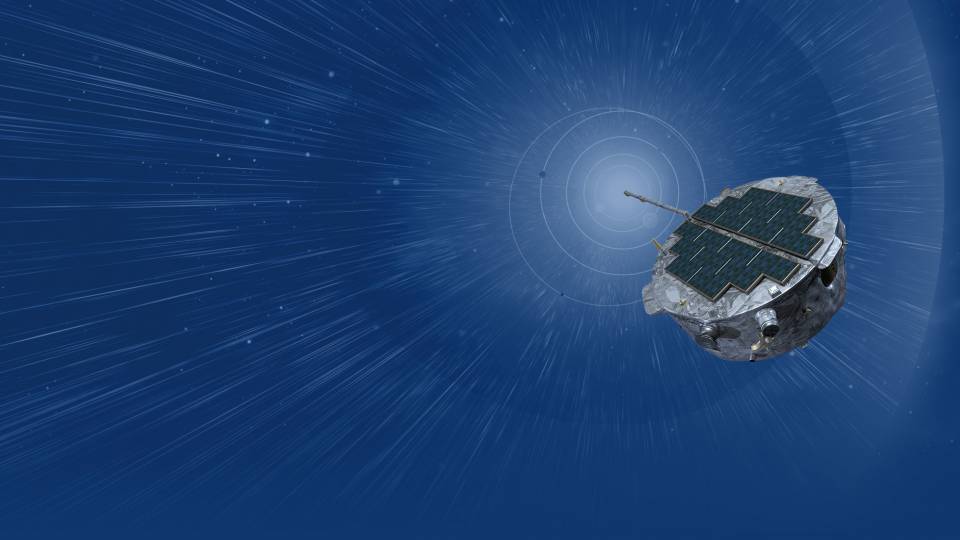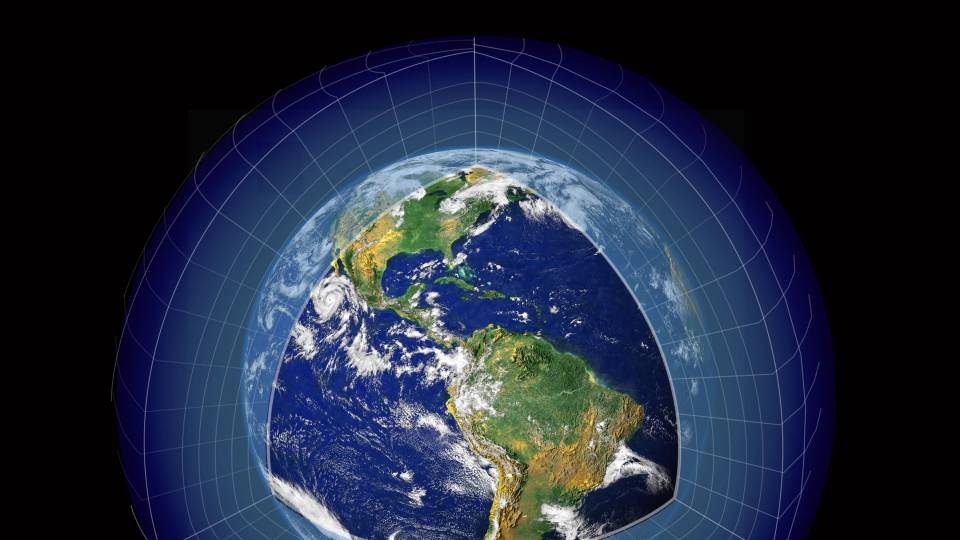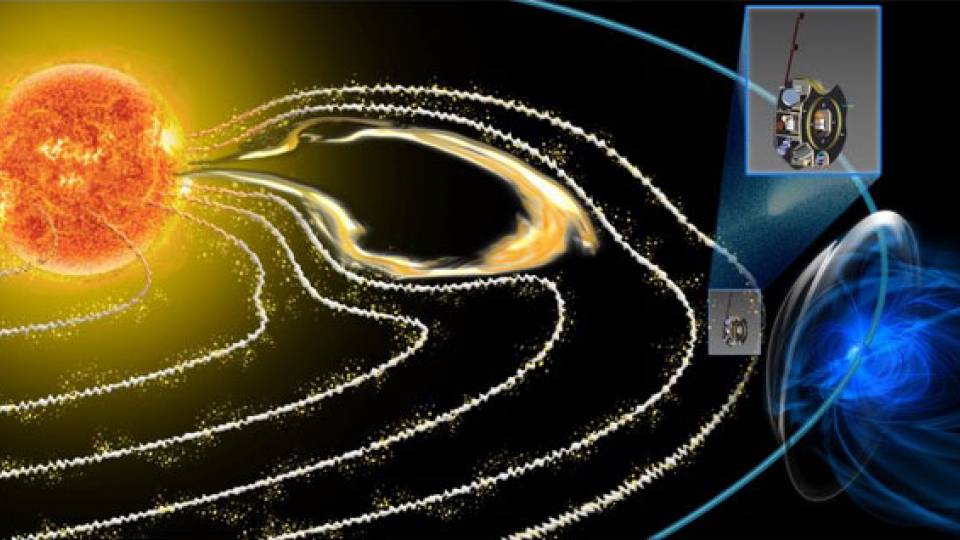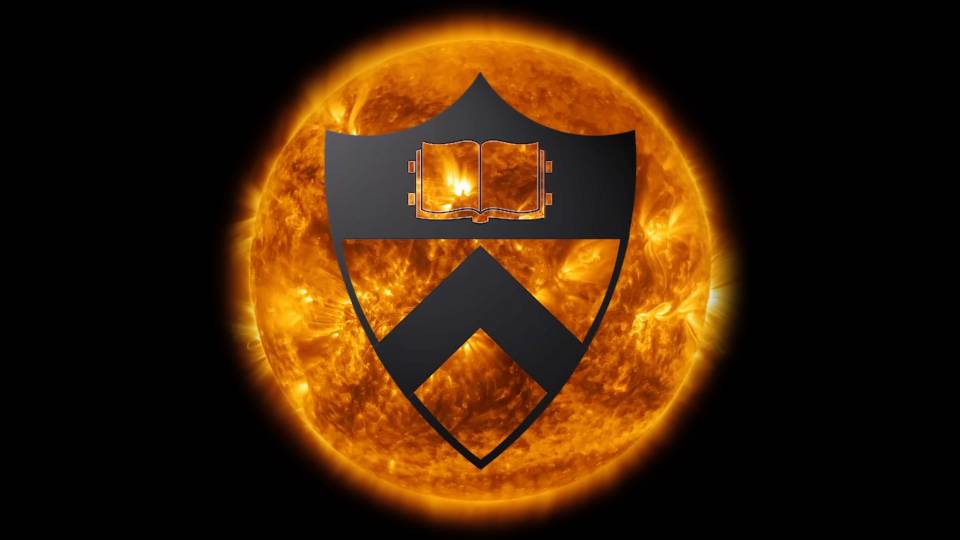Three Princetonians are among the 16 scientists receiving the highest honors given by the National Academy of Sciences (NAS). These major awards recognize extraordinary scientific achievements in a wide range of fields spanning the physical, biological, social and medical sciences. The winners will receive their awards at a ceremony on April 30, during the National Academy of Sciences’ 160th annual meeting.
Kirk Bryan Jr. will receive the Alexander Agassiz Medal (awarded every five years) for pioneering and visionary work in oceanography and climate science. David McComas will receive the Arctowski Medal (awarded every two years) for pioneering contributions to experimental space plasma physics. Tim Buschman will receive a Troland Research Award (won by two scientists each year) for his groundbreaking contributions and insights into the neural mechanisms of cognitive control.
The National Academy of Sciences is a private, nonprofit institution that was established under a congressional charter signed by President Abraham Lincoln in 1863. Scientists who make a significant contribution are elected to membership. Together with the National Academy of Engineering and the National Academy of Medicine, the NAS provides science, engineering, and health policy advice to the federal government and other organizations.
Agassiz Medal: Kirk Bryan Jr.

Kirk Bryan Jr.
Bryan’s research with ocean and climate models advanced the frontiers of understanding of the ocean’s role in Earth’s climate.
Over his career, Bryan’s work aimed to improve our understanding of ocean sciences. His work established the foundations for numerical modeling in ocean and climate science, providing insights into how the ocean works, focusing particular attention on the ocean’s role in the earth climate system and its anthropogenically induced changes.
“Kirk being awarded this medal is really a huge deal, because he has been a modest, soft-spoken gentleman,” said V. “Ram” Ramaswamy, director of the Geophysical Fluid Dynamics Laboratory (GFDL) and a lecturer with the rank of professor at Princeton. “In fact, he and Suki Manabe together are responsible for setting the entire subject of modeling of climate and climate change. Suki fondly recalls how, without the benefit of the innovative ocean modeling prowess of Kirk, Suki would not have been able to create the climate models and modeling skills that they gave together to the world. Kirk truly deserves this high honor.”
In 1961, Bryan joined the newly established GFDL in Washington D.C, where he began a lifelong intellectual partnership with Manabe (winner of the 2021 Nobel Prize in Physics). Upon moving with GFDL to Princeton in 1968, Manabe and Bryan were two of the founding members of Princeton University’s Program in Atmospheric and Oceanic Sciences (AOS) as lecturers with the rank of professor and as mentors to numerous postdocs and visiting scientists.
In 1969, Bryan and Manabe constructed the world’s first coupled ocean-atmosphere model, achieved through Bryan’s three-fold expertise in the rapidly developing world of numerical methods and computer hardware, his deep understanding of ocean theory and observations, and his insights into how the ocean fits into the climate system.
Bryan led the GFDL Ocean Division from 1961 until his retirement in 1995, and he remained a senior research scholar in AOS until his retirement from the University in 2007.
The Alexander Agassiz Medal is presented every five years and honors original contributions in the science of oceanography. The award is presented with a medal and a $20,000 prize.
Arctowski Medal: David McComas

David McComas
McComas, Princeton’s vice president for the Princeton Plasma Physics Lab and professor of astrophysical sciences, has made seminal contributions through innovative mission and instrumentation development that have benefited and supported the entire scientific community and led ground-breaking observations, analysis, and discovery of fundamental physics of the heliosphere and the very local interstellar medium, the solar wind, and the Earth’s and other planetary magnetospheres.
By developing new instrumentation and missions, taking measurements with novel techniques and of previously unexplored regions of the solar system, and innovatively analyzing and publishing these observations, McComas has made numerous and wide-ranging discoveries that have significantly advanced our knowledge and understanding of the global structure and evolution of the solar wind and revolutionized our understanding of its interaction with the local interstellar medium.
McComas has led or leads the TWINS, IBEX, and IMAP NASA missions as well as space instruments for numerous other missions including Parker Solar Probe, Advanced Composition Explorer, Ulysses mission out of the ecliptic, New Horizons to and past Pluto, Juno to Jupiter, and Cassini to Saturn.
“Most of those missions are still flying, and they all have data that is leading to many new discoveries,” McComas said. “We want to continue to propose and build instruments for future missions and analyze their data too. My hope is that Princeton will have a longstanding program in experimental space physics. It’s a fascinating area scientifically — and academically for our students and researchers.”
His contributions include a deep commitment to international collaboration and dedication to mentoring and training the next generation of space physics explorers.
Space physics, solar physics and solar terrestrial relationships, and heliophysics are different names for the same field, McComas explained: “the study of the space that affects us directly — the sun, the planets, and the solar wind that fills up the heliosphere and interacts at its boundaries with the very local interstellar medium. That's all space physics.”
The Arctowski Medal is presented every two years to recognize outstanding contributions to the study of solar physics and solar terrestrial relationships. The Medal is presented with an award of $100,000, which McComas will give to charitable funds, plus $100,000 to support research in solar physics and solar terrestrial relationships, which McComas will use to support the future of the experimental space physics program he began at Princeton. The Arctowski Medal was established in 1958 by the bequest of Jane Arctowska in honor of her husband, Henryk Arctowski.
Troland Research Award: Tim Buschman

Tim Buschman
Buschman, associate professor of psychology at Princeton University, has provided groundbreaking insights into the neural mechanisms of cognitive control, particularly how these mechanisms relate to attention and working memory.
Buschman defines cognitive control this way: “How do you guide your actions and your thoughts? How do you control your actions and thoughts in order to achieve what you want, what outcomes you desire?”
He gives the example of answering a ringing phone. “If you're walking down the street and your cell phone rings, you will answer it — unless you're a millennial, in which case you won't — but then if you walk into a classroom, and your cell phone rings, your behavior will change completely. You’ll be embarrassed and mute your phone as quickly as you can. Stepping into a classroom is a very small change in terms of time, and yet now the same input will lead to a completely different output. That’s just one example of how cognitive control allows us to adapt our behavior as the situation changes or our goals change.”
Buschman’s research combines cutting-edge experimental and theoretical approaches to provide a deeper understanding of how cognition arises from the interactions of populations of neurons.
His work provides unique insight into the neural and computational mechanisms that are key to working memory, attention and goal-directed behavior. In parallel to this work, Buschman and his research team are also making pioneering discoveries about the principles of neural coding that underlie high-level cognition.
Two Troland Research Awards of $75,000 are given annually to recognize unusual achievement by early-career researchers (preferably 45 years of age or younger) and to further empirical research within the broad spectrum of experimental psychology. The Troland Research Award was established by a trust created in 1931 by the bequest of Leonard T. Troland.





